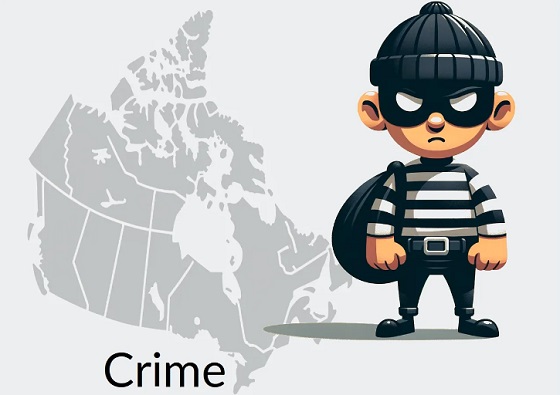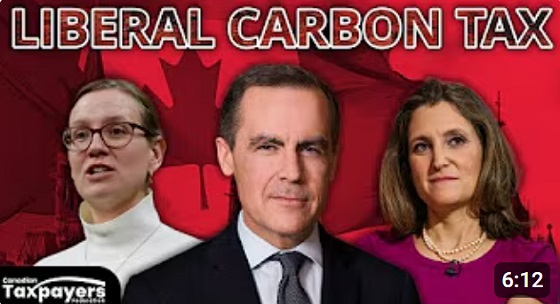Business
What Is It About Politicians and Corporate Bribery Scandals?


 By David Clinton
By David Clinton
Another possible case of influence peddling – this time on behalf of Brookfield Asset Management
On the surface, this is about a strange venture involving Canadian private equity firm Brookfield Asset Management – whose chair until a few weeks ago was Mark Carney. But it seems to me that this particular event is really just one example of a much larger pattern.
In 2016, as Matt Taibbi recently wrote, the U.S. Justice Department settled a claim against the Brazilian construction conglomerate Odebrecht on a case “involving at least $788 million in illegal payments to officials all over the world, as a means of rigging bids and securing contracts.”
As the terms of the settlement were being negotiated, Brookfield made a big purchase from Odebrecht: a 57 percent stake in Rutas de Lima, a private road toll authority in Peru. According to the U.S. Justice Department, Rutas de Lima has demonstrably engaged in corrupt activities.
What’s of interest to us right now is how the 2016 settlement didn’t include – or even mention – Rutas de Lima. That, presumably, would be to Rutas de Lima’s considerable advantage, as their assets would thereby be shielded from the U.S. government. It’s notable that one of the two Justice Department officials who signed off on the settlement had – both before and after his time at Justice – also happened to work for a law firm that represented Brookfield in Washington.
None of which proves any wrongdoing on the part of Brookfield. But it does hint to an association between them and a combination of criminal behavior and political influence peddling. And it turns out that, not only does Brookfield still own Rutas de Lima in 2025, but they’re still actively engaged in legal efforts to recover profitable concessions lost after in the aftermath of the original prosecution.
To be clear, Mark Carney only joined Brookfield in 2020 – long after the Odebrecht settlement – so it’s unlikely any of this directly impacts him.
The thing is, that corporate bribery and government influence peddling are not exactly rare events. In fact, they’re not even rare in Canada.
Remember SNC-Lavalin? That’s the Montreal-based engineering and construction firm that got into some trouble back in 2018 when they were caught bribing (there’s that word again) Libyan officials with upwards of $48 million to secure contracts.
That was a problem. But the Liberal government in Ottawa seemed to have felt that a criminal conviction for SNC-Lavalin in the case would have been a much larger problem. A conviction, after all, would have limited the company’s ability to bid for future federal construction contracts.
During the summer of 2019, as you probably don’t recall, Ethics Commissioner Mario Dion concluded that Prime Minister Trudeau used inappropriate means in an attempt to “circumvent, undermine and ultimately discredit” the decision of the Director of Public Prosecutions. In other words, political heavy hitters went to bat to protect favored corporations from the consequences of an international case of criminal bribery (and fraud).
In the end, SNC-Lavalin Construction Inc. pleaded guilty to just one fraud charge related to Libya, and agreed to a $280 million fine and three years’ probation. Other charges were dropped, avoiding a full trial on the broader allegations. And SNC-Lavalin – since rebranded as AtkinsRéalis – is still happily signing on for many of the largest infrastructure projects in the country.
I suppose government contracts and bribery go together like peanut butter and jam. The Libyan scandal wasn’t even SNC_Lavalin’s first kick at the can. There was, after all, the McGill University Health Centre (MUHC) bribery scandal of 2007 where company executives funneled $22.5 million to MUHC executives to seal the $1.3 billion contract for the new Glen site hospital in Montreal.
But I’m specifically interested in the close personal relationships that seem to inspire powerful government officials to actively subvert the judicial process to cover for such massive crimes. Those seem to represent the greatest threat to our social contract. And, as we’ve just seen from developments in the Brookfield/Rutas de Lima case, they’re aren’t showing signs of disappearing.
2025 Federal Election
MEI-Ipsos poll: 56 per cent of Canadians support increasing access to non-governmental healthcare providers

-
Most believe private providers can deliver services faster than government-run hospitals
-
77 per cent of Canadians say their provincial healthcare system is too bureaucratic
Canadians are increasingly in favour of breaking the government monopoly over health care by opening the door to independent providers and cross-border treatments, an MEI-Ipsos poll has revealed.
“Canadians from coast to coast are signalling they want to see more involvement from independent health providers in our health system,” explains Emmanuelle B. Faubert, economist at the MEI. “They understand that universal access doesn’t mean government-run, and that consistent failures to deliver timely care in government hospitals are a feature of the current system.”
Support for independent health care is on the rise, with 56 per cent of respondents in favour of allowing patients to access services provided by independent health entrepreneurs. Only 25 per cent oppose this.
In Quebec, support is especially strong, with 68 per cent endorsing this change.
Favourable views of accessing care through a mixed system are widespread, with three quarters of respondents stating that private entrepreneurs can deliver healthcare services faster than hospitals managed by the government. This is up four percentage points from last year.
Countries like Sweden and France combine universal coverage with independent providers and deliver faster, more accessible care. When informed about how these health systems run, nearly two in three Canadians favour adopting such models.
The poll also finds that 73 per cent of Canadians support allowing patients to receive treatment abroad with provincial coverage, which could help reduce long wait times at home.
Common in the European Union, this “cross-border directive” enabled 450,000 patients to access elective surgeries in 2022, with costs reimbursed as if they had been treated in their home country.
There’s a growing consensus that provincial healthcare systems are overly bureaucratic, with the strongest agreement in Alberta, B.C., and Quebec. The proportion of Canadians holding this view has risen by 16 percentage points since 2020.
Nor do Canadians see more spending as being a solution: over half say the current pace of healthcare spending in their province is unsustainable.
“Governments shouldn’t keep doubling down on what isn’t working. Instead, they should look at what works abroad,” says Ms. Faubert. “Canadians have made it clear they want to shift gears; now it’s up to policymakers to show they’re listening.”
A sample of 1,164 Canadians aged 18 and older was polled between March 24th and March 28th, 2025. The margin of error is ±3.3 percentage points, 19 times out of 20.
The results of the MEI-Ipsos poll are available here.
* * *
The MEI is an independent public policy think tank with offices in Montreal, Ottawa, and Calgary. Through its publications, media appearances, and advisory services to policymakers, the MEI stimulates public policy debate and reforms based on sound economics and entrepreneurship.
2025 Federal Election
POLL: Canadians say industrial carbon tax makes life more expensive

The Canadian Taxpayers Federation released Leger polling showing 70 per cent of Canadians believe businesses pass on most or some of the cost of the industrial carbon tax to consumers. Meanwhile, just nine per cent believe businesses pay most of the cost.
“The poll shows Canadians understand that a carbon tax on business is a carbon tax on Canadians that makes life more expensive,” said Franco Terrazzano, CTF Federal Director. “Only nine per cent of Canadians believe Liberal Leader Mark Carney’s claim that businesses will pay most of the cost of his carbon tax.
“Canadians have a simple question for Carney: How much will your carbon tax cost?”
The federal government currently imposes an industrial carbon tax on oil and gas, steel and fertilizer businesses, among others.
Carney said he would “improve and tighten” the industrial carbon tax and extend the “framework to 2035.” Carney also said that by “changing the carbon tax … We are making the large companies pay for everybody.”
The Leger poll asked Canadians who they think ultimately pays the industrial carbon tax. Results of the poll show:
- 44 per cent say most of the cost is passed on to consumers
- 26 per cent say some of the cost is passed on to consumers
- 9 per cent say businesses pay most of the cost
- 21 per cent don’t know
Among those decided on the issue, 89 per cent of Canadians say businesses pass on most or some of the cost to consumers.
“Carbon taxes on refineries make gas more expensive, carbon taxes on utilities make home heating more expensive and carbon taxes on fertilizer plants increase costs for farmers and that makes groceries more expensive,” Terrazzano said. “A carbon tax on business will push our entrepreneurs to cut production in Canada and increase production south of the border and that means higher prices and fewer jobs for Canadians.”
-

 2025 Federal Election2 days ago
2025 Federal Election2 days agoNo Matter The Winner – My Canada Is Gone
-

 2025 Federal Election2 days ago
2025 Federal Election2 days agoASK YOURSELF! – Can Canada Endure, or Afford the Economic Stagnation of Carney’s Costly Climate Vision?
-

 Alberta2 days ago
Alberta2 days agoMade in Alberta! Province makes it easier to support local products with Buy Local program
-

 2025 Federal Election2 days ago
2025 Federal Election2 days agoCSIS Warned Beijing Would Brand Conservatives as Trumpian. Now Carney’s Campaign Is Doing It.
-

 Alberta2 days ago
Alberta2 days agoProvince to expand services provided by Alberta Sheriffs: New policing option for municipalities
-

 2025 Federal Election1 day ago
2025 Federal Election1 day agoInside Buttongate: How the Liberal Swamp Tried to Smear the Conservative Movement — and Got Exposed
-

 Bruce Dowbiggin1 day ago
Bruce Dowbiggin1 day agoIs HNIC Ready For The Winnipeg Jets To Be Canada’s Heroes?
-

 Dr. Robert Malone1 day ago
Dr. Robert Malone1 day agoThe West Texas Measles Outbreak as a Societal and Political Mirror








